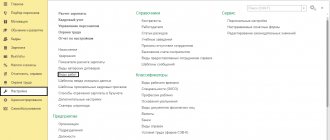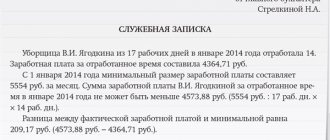Salaries for foreigners are calculated according to the same rules as for citizens of the Russian Federation. The employer must have formalized labor relations with all employees. In the case of foreign specialists, it is necessary to have permits, the composition of which depends on what category of foreigners the employee belongs to - whether he needs a visa to live and work in the Russian Federation or not. An important feature of conducting wage settlements with foreign workers is the need to comply with currency legislation.
How to determine the residence of an employee
Contrary to popular belief, an employee's residency status does not depend on his citizenship or nationality. Non-residents of the Russian Federation can be both citizens of the Russian Federation and foreigners or stateless persons.
The only criterion for establishing residency is the period of stay of a citizen on the territory of the Russian Federation. According to the norms of current legislation, a resident of the Russian Federation is a person who has been in Russia for at least 183 days during a calendar year.
The specified period of stay in the Russian Federation can be either continuous or consist of several time periods.
Let's look at an example. Citizen of Tajikistan Aliyev was in the Russian Federation in 2021 from 01/01/2021 to 02/28/2021 (59 days) and from 05/01/2021 to 10/01/2021 (154 days). The rest of the time Aliyev lived in Tajikistan.
Since Aliyev’s total stay in the Russian Federation exceeds 183 calendar days, he is recognized as a resident of the Russian Federation. Citizenship of Tajikistan and the absence of citizenship of the Russian Federation do not affect the assignment of Aliyev to the status of a resident of the Russian Federation.
Who is the recipient?
It is now possible to transfer wages in foreign currency to specialists working under agreements concluded with resident legal entities who perform their work duties outside the territory of Russia.
You can also transfer your salary to a foreign account: for employees of diplomatic missions and consular offices of the Russian Federation located outside the territory of the Russian Federation; employees of permanent missions of Russia to international (interstate, intergovernmental) organizations, other official missions of Russia and representative offices of federal executive authorities located outside the territory of the Russian Federation; representatives of federal executive authorities (deputies of representatives of federal executive authorities) located outside the territory of Russia; employees of representative offices and branches of government agencies of the Russian Federation located outside the territory of our country; persons sent by federal executive authorities outside the territory of the Russian Federation to provide technical assistance and perform other duties (for example, military personnel).
How can an employee confirm his resident status?
An employee's resident status is confirmed in one of the following ways:
- There are no facts that refute the stay of a citizen in the Russian Federation for a period of more than 183 days . For example, citizen Petrov is a full-time employee of the Russian enterprise Alfa. Petrov’s place of work is Saratov. During 2021, Petrov performed official duties in accordance with the established schedule, and also stayed on vacation for a period of 28 calendar days in Crimea. Thus, we can conclude that Petrov was constantly on the territory of the Russian Federation, which means he has resident status.
- There are facts confirming the citizen’s stay in Russia for more than 183 days . Let’s say citizen Suleymanov permanently resides in Azerbaijan, while working in Russia. In 2021, Suleymanov was in Russia from 04/01/2021 to 10/01/2021 (184 days), the rest of the time he lived in his homeland, Azerbaijan. Since Suleymanov’s stay exceeds 183 calendar days during the year, he is recognized as a resident of the Russian Federation. Documentary confirmation of status are border crossing marks.
Payment of salaries to foreign workers
Can an organization pay foreign employees (temporarily staying) wages in cash?
In accordance with Art. 2 of the Federal Law of July 25, 2002 No. 115-FZ “On the legal status of foreign citizens in the Russian Federation” temporarily staying
In the Russian Federation,
a foreign citizen is a person
who arrived in the Russian Federation on the basis of a visa or in a manner that
does not require a visa
, and has received a migration card, but does not have a residence permit or temporary residence permit.
According to Art. 13.3 of Law No. 115-FZ employers
or customers of work (services) who are legal entities or individual entrepreneurs or private notaries, lawyers who have established a law office, or other persons whose professional activities in accordance with federal laws are subject to state registration and (or) licensing, have the
right to engage in labor activities
foreign citizens legally residing in the territory of the Russian Federation, who arrived in the Russian Federation
in a manner that does not require a visa
, and who have reached the age of 18 years, if each such foreign citizen has a patent issued in accordance with the law.
On the territory of the Russian Federation, the rules established by labor legislation and other acts containing labor law norms apply to labor relations with the participation of foreign citizens
, stateless persons (
Article 11, 327.1 of the Labor Code of the Russian Federation
).
Including Art.
136 of the Labor Code of the Russian Federation
,
regulating the procedure, place and timing of payment of wages
.
Salaries are paid
to the employee, as a rule,
at the place where he performs the work, or is transferred to the credit institution
specified in the employee’s application, on the terms determined by the collective agreement or employment contract.
Art. 131 Labor Code of the Russian Federation
It has been established that
wages
are paid in cash
in the currency of the Russian Federation
(
in rubles
).
P.p. “b” clause 9, part 1, art. 1 of the Federal Law of December 10, 2003 No. 173-FZ “On Currency Regulation and Currency Control”
It has been established that the acquisition by a resident from a non-resident or by a non-resident from a resident and the alienation by a resident in favor of a non-resident or by a non-resident in favor of a resident of currency valuables, the currency of the Russian Federation and domestic securities on a legal basis, as well as the use of currency valuables, the currency of the Russian Federation and domestic securities as a means payments
are recognized as currency transactions
.
In this case, residents
are individuals who are citizens of the Russian Federation, with the exception of
citizens of the Russian Federation who are permanently residing in a foreign state for at least one year, including those who have a residence permit issued by the authorized state body of the relevant foreign state, or who are temporarily staying in a foreign state for at least one year years on the basis of a work visa or study visa with a validity period of at least one year or on the basis of a combination of such visas with a total validity period of at least one year, permanent residents of the Russian Federation on the basis of a residence permit provided for by the legislation of the Russian Federation, foreign citizens and stateless persons .
Non-resident individuals
(not related to the above persons) are recognized
as non-residents
.
Therefore, in your case, foreign workers are recognized as non-residents
.
According to paragraph 2 of Art. 14 of Law No. 173-FZ settlements when carrying out currency transactions
are carried out
legal entities through bank accounts
in authorized banks, the procedure for opening and maintaining which is established by the Central Bank of the Russian Federation, as well as by electronic money transfers.
Legal entities
-
residents can, without using bank accounts
in authorized banks,
-
resident individuals in cash currency of the Russian Federation only under contracts for the retail purchase and sale
of goods, as well as settlements
rendering
services
to
non-resident
individuals on the territory of the Russian Federation to the population.
Consequently, payment of wages to foreign employees in cash is recognized as a foreign exchange transaction
.
In accordance with Art. 15.25 Code of Administrative Offenses of the Russian Federation
carrying out
illegal currency transactions
entails the imposition of
an administrative fine
on citizens, officials and legal entities in the amount
of three-quarters to one of the amount of the illegal currency transaction
.
At the same time , for violation of the currency legislation of the Russian Federation, the resolution in the case
an administrative offense
can be issued within 2 years from the date of commission
of the administrative offense (
Article 4.5 of the Code of Administrative Offenses of the Russian Federation
).
The Federal Tax Service of the Russian Federation claims that the employer
—
a resident is obliged
to pay wages to a non-resident employee (including a citizen of the Republic of Belarus)
exclusively in non-cash form
(letter dated August 29, 2016 No. ZN-4-17/15799).
Judicial practice on this issue is ambiguous
.
Thus, the Presidium of the Supreme Arbitration Court of the Russian Federation
in Resolution No. 15693/07 dated March 18, 2008, he noted that the currency legislation of the Russian Federation
does not contain a ban on the issuance by a Russian legal entity of wages to foreign citizens in Russian currency
.
Based on Art. 6 of Law No. 173-FZ, currency transactions between residents and non-residents are carried out without restrictions
,
with the exception
of certain currency transactions provided for by this Law, to which the said operation does not apply, and therefore it is an operation permitted by currency legislation.
The procedure for carrying out such a currency transaction, as well as the requirements for using a special account when performing it, are also not established.
.
In accordance with Part 2 of Art. 5 of Law No. 173-FZ, foreign exchange transactions are carried out without restrictions
, if the procedure for carrying out currency transactions, the procedure for using accounts (including establishing the requirement to use a special account) are not established by the currency regulatory authorities.
Since a currency transaction carried out when a Russian legal entity issues cash in Russian currency to foreign citizens as wages is permitted by law
and is not limited by the requirements for the use of a special account and reservations,
it cannot be classified as illegal currency transactions
, the commission of which forms the objective side of the administrative offense provided for in
Part 1 of Art.
15.25 Code of Administrative Offenses of the Russian Federation .
A similar position is set out in the Determination of the Supreme Arbitration Court of the Russian Federation
dated January 27, 2014, No. VAS-19914/13.
However, in resolution dated March 6, 2015 No. 307-AD15-691, the Supreme Court of the Russian Federation declared it an illegal currency transaction
issuing wages to foreign workers in rubles in cash.
At the same time, the Court recognized that the perfect
by society,
the offense is insignificant
, since it does not pose a significant threat to public relations in the field of currency regulation and currency control.
And according to Art.
2.9 of the Code of Administrative Offenses of the Russian Federation, if
the administrative offense committed is insignificant, the judge, body, official authorized to resolve the case of an administrative offense
may release the person
who committed the administrative offense
from administrative liability
and limit himself to an oral remark.
A new turn in this issue occurred in 2021.
Supreme Court of the Russian Federation
in the resolution dated 04/20/2016 No. 305-AD15-20223 left unchanged the resolution of the Ninth Arbitration Court of Appeal dated 04/13/2015 No. 09AP-9595/2015, in which the court indicated that based on the provisions of Part 1 of Art. 13 of the Law on Currency Control, non-residents on the territory of the Russian Federation have the right to open bank accounts (bank deposits) in foreign currency and the currency of the Russian Federation only in authorized banks.
Consequently, currency legislation does not directly oblige non-residents to contact authorized banks and open bank accounts in Russian currency on the territory of the Russian Federation
, including for the purpose of receiving payments due to employment relationships in non-cash form.
From the norms of Art. 130, 131, 136 Labor Code of the Russian Federation
It follows that if
the employee has not indicated a bank account
, the terms of the transfer are not specified in the employment or collective agreement, or the employee does not want to receive wages in cash at all, then a non-cash form of receiving wages is impossible, otherwise the employer’s actions can be seen the composition of an administrative offense, liability for which is provided for
in Art.
5.27 Code of Administrative Offenses of the Russian Federation (violation of labor and labor protection legislation).
If the employment contract
non-resident
individuals ,
there is no provision for the transfer of wages to a bank account
, and there is no evidence that when concluding these agreements, employees expressed a desire to receive wages through a bank account,
the company does not pay wages to its foreign employee in cash constitutes an administrative offense
, liability for which is established
by Part 1 of Art.
15.25 Code of Administrative Offenses of the Russian Federation .
But, we repeat, a single position
have not been formed
on this issue .
Translation rules
The transfer of wages to accounts opened in a foreign bank is carried out in accordance with the general procedure, but it is necessary not to forget about currency control. Government agencies have the right to request and receive from residents and non-residents, and residents and non-residents are required to provide documents (copies of documents) and information related to currency transactions (Government Decree No. 98).
If an organization refuses to provide documents, then the company may be held liable under Article 19.7 of the Code of Administrative Offenses of the Russian Federation. The arbitrators agree with this state of affairs, this is confirmed by practice, for example, the Resolution of the Saratov Regional Court of November 29, 2021 in case No. 4A-782/2016.
As noted above, salary transfers are carried out in accordance with the general procedure. Please note that Regulation No. 383-P does not apply when making payments in foreign currency.
note
I recommend preparing documents confirming the fact that you are transferring wages, and your employee is a posted employee or an employee of a representative office located abroad.
Federal Law No. 395-1 of December 2, 1990 established that a credit institution carries out settlements according to the rules, forms and standards established by the Bank of Russia; in the absence of rules for conducting certain types of payments - by mutual agreement; when making international payments - in the manner established by federal laws and rules adopted in international banking practice. However, a unified form of order for transferring funds to an account opened in a foreign bank has not been established. Each bank independently develops these forms.
Credit institutions themselves publish application forms on their websites. Therefore, before transferring money, you may want to check the form of the bank that services your company.
In addition, I recommend preparing documents confirming the fact that you are transferring wages, and your employee is a posted employee or an employee of a representative office located abroad. After all, we have already said above that the bank has the right to request documents confirming the legality of the transfer abroad; these could be orders for business trips, employment contracts with employees.
Documents to the bank for transferring salary to a non-resident
- Personal income tax – no later than the day following the day of transfer of salaries to employees’ accounts (clause 6 of article 226 of the Tax Code of the Russian Federation);
- contributions for compulsory pension (social, medical) insurance - no later than the 15th day of the month following the month of accrual of payments and remunerations (Part 5 of Article 15 of the Law of July 24, 2020
- Currency transaction code when transferring wages to a non-resident
- Paying wages to a foreigner: in cash or by card?
- Bank24.
RU - Bank refusal to transfer salary by bank transfer
- Issuing bank cards for salary payments
- When transferring wages to a non-resident, what to provide to the bank?
Purpose of payment when transferring salary to a non-resident
Codes of types of currency transactions are necessary to ensure control, monitoring and analysis of information on payment transactions carried out between residents/non-residents.
The currency transaction code is indicated in the certificate filled out by the resident: when crediting/writing off money (in Russian rubles) from/in favor of a non-resident; when crediting foreign currency to a transit account or debiting funds in foreign currency from a current account.
execution of payment orders for foreign exchange payments requires the correct indication of the KVVO (code of the type of currency transaction). The five-digit indicator is entered in the line “Purpose of payment” at the beginning of the text sentence and has the following structure: , while ***** is a designation of the type of foreign exchange transaction. Note! Spaces in data inside curly braces are prohibited.
Sample payment slip for transferring salary to card
A payment order for the transfer of salaries to staff is a document whose execution is not difficult, but it is worth taking into account the nuances of filling out the details. To ensure normal payment processing, they are filled out in accordance with the following requirements:
The transfer is executed by payment order, the details of filling which are discussed in our publication.
It is important to take into account the fact that the payment day is usually considered the day the funds are credited to the card, and this day should not be later than the deadlines established by tax legislation.
In order to prevent delays in salary payments, it is necessary to take into account the time period that the bank allocates for crediting money to accounts.
Salary to the bank for a non-resident documents
Your so-called The “rare exception” is HUNDREDS OF THOUSANDS of people. On a national scale, these are the exceptions. And not all organizations encounter such people in their work. And not hundreds of thousands have a residence permit in Russia. And actually, I meant with the exception of citizens of the Russian Federation who have a residence permit in another country. Read carefully.
grisha1974, then, in the overwhelming majority of cases, residents are citizens of the Russian Federation. This is the entire population of our country, with rare exceptions. If a bank has opened an account for an individual as a non-resident, then he is a non-resident. The bank will open a regular account for a resident, like all other citizens of our country.
You cannot change the bank’s decision to open an account, so in any case for you it will be a transfer to a non-resident
PS: Can you stop trying to make claims to those who answer you? This has been suggested to you more than once on more than one forum.
Source: https://lawcapital.ru/test_category/dokumenty-v-bank-dlya-perechisleniya-zarplaty-nerezidentu
Transferring wages to a non-resident to a bank card in 2021
Not all employers know how to actually pay wages to a foreign worker in accordance with the law; many still ask whether it is legal to pay wages to foreign citizens in cash or whether it is still necessary to transfer wages to a foreign citizen on a card.
From our article you will learn the answer to this question once and for all.
According to the law, payment of wages to foreign employees in 2021 must be made in non-cash form through authorized banks, in other words, through the transfer of wages to a foreign citizen to a bank card. That is, paying wages to foreign workers in cash through a cash register is prohibited.
Receipt of wages by a foreign citizen is considered a foreign exchange transaction, and according to the law, such transactions can only be carried out through banks, therefore paying wages through the cash desk to foreign citizens is a violation and entails an administrative fine.
Part 1 of Article 15.25 of the Code of Administrative Offenses provides for administrative responsibility for carrying out currency transactions, settlements for which are made without going through bank accounts. For violation of the procedure for conducting currency transactions when paying wages to foreign employees, the following liability is provided:
- For legal entities individuals and individual entrepreneurs - a fine in the amount of 75% to 100% of the amount of the illegal currency transaction;
- For officials - from 20,000 to 30,000 rubles.
The period for bringing administrative liability for illegal currency transactions when paying wages to foreign citizens is 2 years from the date of payment of wages to foreign workers in cash through the organization's cash desk.
Thus, the wages of migrants in Russia must be paid to a bank card; issuing wages to foreign workers in cash through a cash register may result in claims from the tax authorities.
Please like if you found our article on paying wages to foreign citizens in Russia useful or share information about how wages should be paid to a foreign worker on social media. networks:
Will Russians be charged additional personal income tax and VAT for card transfers?
“Letter of the Federal Tax Service of Russia dated May 7, 2019 No. SA-4-7/8614” appeared on social networks, the essence of which allegedly boils down to the fact that private individuals who are engaged in commercial activities in one form or another, without appropriate registration of this activity, will still be subject to VAT and personal income tax.
These norms, by the way, came into force on January 1, 2019. However, in practice and everywhere, due to total verification and monitoring of all money transfers, they will start working in 2021 - this is exactly what insiders promise.
At the same time, the letter from the Federal Tax Service is characteristic in that it prescribes the signs of “secret commercial activity.”
At the same time, factors are additionally spelled out that allow tax authorities to qualify a particular private transaction as commercial - these include “testimonies of persons who paid for goods, work, and even advertising on the Internet.
By the way, as emphasized in the letter from the Federal Tax Service, “the lack of profit itself does not affect the qualification of this offense, since making a profit is the goal of entrepreneurial activity, and not its obligatory result.”
The only way for such “freelancers from small businesses” not to be subject to personal income tax and VAT with penalties, fines and other unpleasant deductions to the state is to register themselves as an individual entrepreneur and work “white” under a simplified taxation system at 6%.
As for specific examples of such commercial activities, a number of lawyers and consultants explain that taxation, based on a study of transfers to a card, includes, for example, trading via the Internet, leasing personal cars, leasing real estate, especially if we are talking about commercial real estate. The service sector will also be subject to personal income tax and VAT. Well, and understandably, small-scale, “everyday” trade in a stall at the market.
As the authors of the channel “Sofa Analyst” note, “Congratulations to sofa wrestlers and mother’s tax evaders - in 2021, additional personal income tax and VAT will be charged for transfers to the card.
Do you use Momentum (the QIWI provider will hand over a special transit account), write for a fee, sell advertising in public pages, do design, nails or cakes, code freelancing, rent out an apartment or car, drive a taxi, sell fruits and cosmetics, do renovations? If a person received money on a card for this, then hello, VAT and (if not exempt under Article 145 of the Tax Code of the Russian Federation) personal income tax.
The Tax Department promises that the checks will be total and all transactions on cards of all banks will be analyzed for “systematic recovery of profits.” The state needs your money, cats."
However, they are already writing on social networks that “Gifts are not income (regardless of the amount). There is no need to indicate it anywhere. There will be no trouble." Experts explain that “Article 217 of the Tax Code lists the income of individuals that is not subject to taxation.
In paragraph 18.
1 of this article states that income in cash and in kind received from individuals as a gift is not taxed (with the exception of cases of donation of real estate, vehicles, shares, interests, shares).”
“Transfer and receive any amounts on cards - if it’s a gift, you don’t need to pay tax,” they advise. However, earlier representatives of Russian banks have already stated that their special IT systems analyze transfers from card to card and massively “search” for those in which the purpose of the transfer is constantly indicated - “debt” or “gift”.
It is clear that, on the one hand, this is an attempt by the state to reduce the gray economic zone in which several trillion rubles circulate throughout the country. On the other hand, in the context of the pension reform, the increase in VAT to 20% and, in general, a certain economic recession, the presence of social discontent is not difficult to predict.
However, it seems that the state system has set a course towards tightening and systematizing economic policy, and this will last for a long time.
New rules for issuing salaries on a card from August 6, 2021 - abolition of wage slavery
On August 6, 2019, changes to Article 5.27 of the Code of Administrative Offenses of the Russian Federation came into force, providing for liability for violation of Article 136 of the Labor Code of the Russian Federation. The regulation is popularly called the “Wage Slavery Act of 2021.”
Now it is easier for employees of the organization to change the bank to which their salaries will be received. Workers had the right to choose a credit institution before, but in practice it was very difficult to defend their rights.
Now the situation must change.
Let's look at the new rules for issuing salaries on a card from August 6, 2019, and how to get your employer to comply with them.
Changes in legislation
Since August 6, the rules for issuing wages have changed, about - as is often called, the non-alternative receipt of wages in a bank convenient for the employer, and not the employee.
At whose expense should I translate?
The cost of the transfer is set by the tariffs of the credit institution that services the organization.
According to the instructions of the Bank of Russia, authorized credit institutions have the right to charge a fee for performing the functions of currency control agents and independently determine the amount and procedure for collecting this fee.
In addition, Federal Law No. 173-FZ “On Currency Regulation and Currency Control” establishes that settlements when carrying out such operations can be made by resident legal entities through accounts opened in banks outside the territory of the Russian Federation, with money credited to these accounts. At the same time, Article 22 of the Labor Code of the Russian Federation establishes that the employer is obliged to pay the full amount of wages due to employees. This means that the company does not have the right to pass on the cost of the bank’s commission for the transfer to the employee.
Should I pay insurance premiums for a foreigner?
Insurance premiums must be paid from a foreigner’s salary. The rules for calculating them depend on the basis on which the foreign worker is employed and in what status he is in the Russian Federation (see explanations in the table of exceptions).
If your employee has the status of residing in the Russian Federation (permanently or temporarily), his salary is subject to contributions on the same principle as the salary of Russians:
- OPS - 22% of income, no more than RUB 1,150,000. (in 2021), and 10% on income above this amount;
- OSS - 2.9% of income not exceeding RUB 865,000. (in 2021), above this income, the accrual of contributions to OSS stops;
- Compulsory medical insurance - 5.1% of all salary payments;
- OSS - according to the tariffs established for the workplace occupied by a foreigner.
Contributions must be accrued and paid regardless of how cooperation with a foreign citizen occurs: under an employment contract or a civil process agreement.
The only exception is if a foreigner has the status of an individual entrepreneur, registered under the laws of the Russian Federation. Then, when concluding an agreement with a Russian legal entity or individual entrepreneur to perform work (render services), the foreign individual entrepreneur pays insurance premiums for himself.







